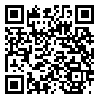Volume 29, Issue 5 (8-2021)
JSSU 2021, 29(5): 3693-3697 |
Back to browse issues page
Abstract: (13031 Views)
Introduction: Emergency school closures are often used as public health interventions during infectious disease outbreaks to minimize the spread of infection. However, Over 80% of children in the world have had their education impacted by coronavirus. For children with special needs who receive special education services, access to face-to-face education and other resources at school is of particular importance. These services focus not only on academic achievement, but also on social, emotional, psychological and physical health and well-being. The American Academy of Pediatrics advocates for students to attend school in person. Students with special needs are divided into seven educational groups: hearing impairment, visual impairment, physical-motor disorders, intellectual disabilities, behavioral-emotional disorders, autism spectrum disorder, specific learning disorder, and severe and multiple disabilities. Each of these groups should have a different way of teaching and learning than other groups and normal students. For proper planning and accommodation of children with special needs, we must prioritize safety. In order for these students to be able to use rehabilitation services, face-to-face education conditions must be provided for them in accordance with health protocols.
Type of Study: Letter to editor |
Subject:
Psychology
Received: 2021/06/26 | Accepted: 2021/08/1 | Published: 2021/08/1
Received: 2021/06/26 | Accepted: 2021/08/1 | Published: 2021/08/1
| Rights and permissions | |
 |
This work is licensed under a Creative Commons Attribution-NonCommercial 4.0 International License. |




